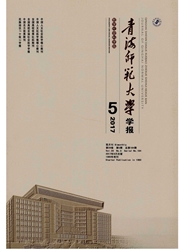

 中文摘要:
中文摘要:
本文基于1990--2008年的省际面板数据,采用面板协整和面板误差修正模型的计量方法,就我国滞后的城镇化对居民消费的影响效应进行了深入的实证分析,研究结果表明:长期来看,滞后的城镇化尽管也促进了居民消费增长,但是,城镇化对我国居民消费的扩大效应没有完全发挥,使得消费对城镇化的弹性下降0.041677;短期来看,滞后的城镇化促进了居民消费、改变了居民的消费习惯,并且使其自动平衡自身的消费支出和提高了居民消费需求对财政预算支出的弹性。
 英文摘要:
英文摘要:
This paper based on the inter--provincial panel data from 1990 to 2008,makes an empirical study of the effect of the lag of urbanization on China~s private consumption through the methods of panel co--integration and panel ECM,the results show that: From the long term, the lagging urbanization also contributed to consumption growth, however, the expansion effect of urbanization on China~s private con- sumption does not take full advantage, to make the consumption elasticity of urbanization decrease 0. 041677; from the short term, lagging urbanization promotes the private consumption,has changed peo- ple's consumption habits, and self--balancing their own consumer spending, improving the elasticity of consumer demand on the budget expenditure.
 同期刊论文项目
同期刊论文项目
 同项目期刊论文
同项目期刊论文
 期刊信息
期刊信息
